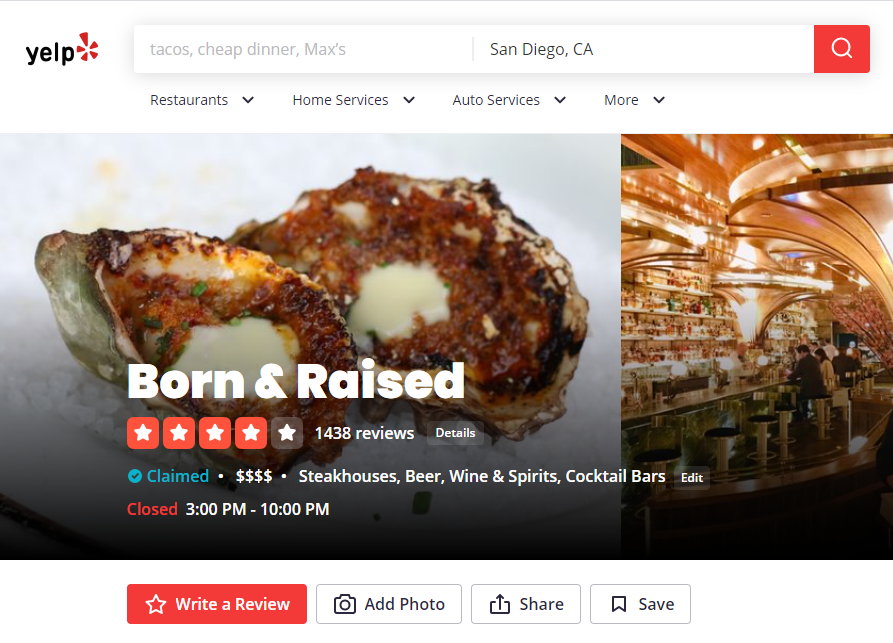This week: Google launches Question Hub in the U.S., Facebook gives its pages a makeover, and Harvard says there’s a connection between price and ratings.
Here’s what happened this week in digital marketing.
Google Launches Question Hub in U.S.
Now you can gather even more ideas for your content marketing strategy.
That’s because Google recently launched its Question Hub in the U.S. Previously, it was available only in India, Indonesia, and Nigeria.
If you’re unfamiliar with Question Hub, it’s a platform that allows you to explore asked, yet unanswered, questions via search.
The idea is that you’ll identify questions relevant to your own content marketing efforts and create blog posts that answer them.
Then, people who search for those questions will visit your site for an answer. And your brand gets more exposure.
Everybody wins.
Facebook Shares Tips on Lead Gen
Looking to maximize lead generation on Facebook? If so, then pay attention to some new tips the company offered recently.
Here they are:
- Lead Capture – Ensure your audience understands what they’re signing up for and why they should do so. In other words, emphasize why your unique selling proposition (USP) is good enough for somebody to give up an email address.
- Lead Magnets – Give before asking. Offer a freebie in exchange for the lead info.
- Landing Page – Make sure your landing page matches what you’ve offered potential customers. Facebook also suggests that you test different landing pages so you can know which ones have the highest click-through rate.
- Lead Scoring – Create a lead scoring matrix so that you can customize outreach efforts. “For example, downloading your white paper is worth more points than unsubscribing from your email list,” Facebook says. “Save time and effort by contacting the leads that are most likely to convert first.”
Facebook also offered a graphic showing what an ideal lead gen ad looks like.

Facebook: Ideal Lead Generation Ad
Google Explains How Its URL Removal Tool Works
You might think that Google’s URL Removal Tool will permanently de-index certain pages.
Nope.
This past week on Twitter, a somewhat confused SEO asked Google’s John Mueller about the tool. The strategist said that his website got hacked with fake pages added to the index.
But even after cleaning up the fake pages using Search Console, the URLs show up in search and generate 404 (Not Found) errors.
Mueller responded as follows:
The URL removal tool in Search Console just temporarily hides pages from the search results, it doesn’t remove anything from the index. Sometimes these pages take a while to be reindexed (& usually those are less-frequently shown in search anyway, so few people see it).
— 🍌 John 🍌 (@JohnMu) January 5, 2021
In fact, the help page for the URL Removals tool specifically says that it “enables you to temporarily block pages from Google Search results on sites that you own.”
So you shouldn’t look to the tool for a permanent solution.
Harvard Study Highlights Relationship Between Prices and Ratings
If you’re delivering a product or service at a high price point, you’d better be delivering outstanding quality. Otherwise, your ratings will suffer.
That’s the finding of an in-progress study by Harvard Business School.
Specifically, the study found that restaurants with high price points had similar average Yelp ratings to restaurants with low price points. The upscale restaurants received an average 3.6 rating while the family dining joints received an average 3.4 rating.

Yelp Rating Example: Born & Raised in San Diego
“We interpret this as suggestive evidence that ratings area function of both quality and price,” the study authors say.
Here’s more: “…we find that increases in prices lead to lower ratings. A 1% increase in price leads to a 0.05-0.14 decrease in rating on a scale of 1 to 3 (the scale used for delivery purchases), which is approximately 2.5%-5% decrease for the average feedback. This effect becomes increasingly important when considering that the average price change is about 3%-9%.”
The researchers also warned that some unscrupulous marketers might try to boost ratings by initially offering low prices.
Facebook Revamps Pages
Facebook rolled out a redesigned layout for Pages.
For starters, the new layout emphasizes the number of followers instead of the number of likes. In fact, users can no longer see how many likes a page has received.
Also, biographies of page managers are now more accessible. That means users can easily get info about the person behind the curtain.

Facebook New Pages Experience
Facebook also added the following features:
- Dedicated Newsfeed – View a newsfeed just like you do with your personal Facebook account. Join conversations, interact with others, and engage with fans.
- Easy Account Switching – Navigate from your personal profile to your page with ease. Just tap the menu icon on the bottom left-hand side of the navigation bar and tap the page/profile you want to switch to.
- Improved Management Tools – Assign admins various levels of access to handle tasks like content, ads, and insights.
- Actionable Insights – Understand your audience better and gain more insight on how content performs. That’s about all Facebook has to say on that subject right now.
- Safety & Integrity – Detect prohibited content such as hate speech, posts promoting violence, and sexual content.
Also, Facebook isn’t removing any features at this time.
WordPress Powers Almost 40% of Websites
WordPress is still the leader of the pack.
The content management system (CMS) is now used by 39.5% of all websites. That’s up from 35% in 2020.
If you count sites that only use a CMS, WordPress holds a 64.1% market share.
Shopify takes a very distant second with a 3.2% market share.
But believe it or not, Shopify isn’t the most popular ecommerce platform on the planet. That title also goes to WordPress thanks to the WooCommerce plugin.
WooCommerce is used by 4.9% of all websites, powers more than 28% of online stores, and retains the title as the most popular plugin in all of cyberspace.
Homework
It’s a new year and time to get some action items on the calendar.
- Take a look at Facebook’s advice for maximizing lead gen. See what you can do to improve your social media marketing efforts.
- Use Google Question Hub to get ideas for content. If you find a lot of questions relevant to your brand, create a content calendar.
- Consider the impact on your ratings before you raise prices. You might find it’s better to hold the line.
- Take a look at Facebook’s new page features. Determine how you can use them to better boost your brand on social media.






















